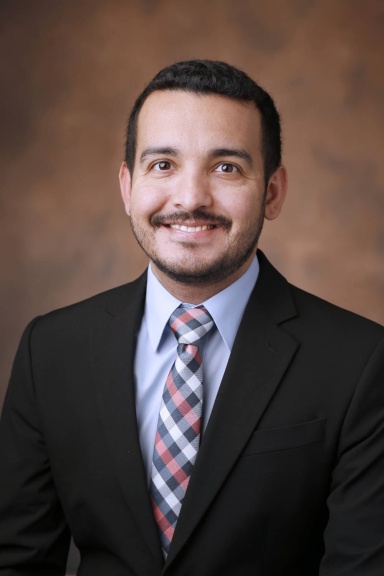Xiangyu Ji promoted to senior biostatistician
We are pleased to announce the promotion of Xiangyu Ji to senior biostatistician, effective January 3. Ji earned her Bachelor of Science degree in public health from California State University Los Angeles, with a data management internship at the University of Southern California Keck School of Medicine prior to graduation. As a student in our master's program, Ji wrote her thesis, "Evaluating uses of machine learning in propensity score estimation on time-to-event data: A simulation study," under the supervision of Amber Hackstadt. As a staff biostatistician, her primary collaboration is with the Vanderbilt Eye Institute / Department of Ophthalmology and Visual Sciences, where her activities have included planning and conducting process standardization for resident research projects, including drafting project roadmaps, creating administrative file templates, and developing data entry protocols. She has also provided biostatistical support to the Division of Gastroenterology, Hepatology, and Nutrition, in the Department of Medicine; the Department of Biomedical Informatics; and Vanderbilt Orthopaedics. She has co-authored peer-reviewed publications in BMC Ophthalmology, Journal of the Academy of Ophthalmology, Thyroid, Ophthalmology, OSLI (Ophthalmic Surgery, Lasers and Imaging) Retina, and JAMA Ophthalmology, with five additional manuscripts under revision or review, all in collaboration with professor Cindy Chen.
Lauren Samuels promoted to research associate professor
We are pleased to announce the promotion of Lauren "Laurie" Samuels to research associate professor, effective January 1. Dr. Samuels earned her bachelor's degree in religious studies at Yale University, enrolling at Vanderbilt after seven years in the workforce for an MEd in secondary education. After serving in Americorps, tutoring Bowie Reading and Learning Center students in math and science, and supporting Vanderbilt's Center for Evaluation and Program Improvement as a research assistant, data manager, and SAS programmer, Dr. Samuels joined our doctoral program and graduated with her PhD in 2017.
Since her initial appointment as a research instructor in 2017 and subsequent promotion to research assistant professor in 2018, Dr. Samuels has proven herself to be a valuable, versatile, and highly engaged collaborator on both research investigations and pedagogical initiatives. She is co-investigator on two R01-funded projects led by Dr. Bill Heerman, "COACH: Competency Based Approaches for Community Health" and "The ADAPT Trial: Adapting Evidence-Based Obesity Interventions in Community Settings"; first author of papers in Statistics in Medicine and Observational Studies; and a current participant in the Fleming Society Academy for Excellence in Education Mentorship Program.
Bryan Helm promoted to principal statistical genetic analyst
We are pleased to announce the promotion of Bryan Helm to principal statistical genetic analyst, effective November 1. Helm earned a BA cum laude in biology at DePauw University, followed by his MS and PhD in ecology and evolutionary biology at the University of Arizona. He was then a postdoc at North Dakota State University (funded by the USDA and NSF) and Indiana University School of Medicine (supported by a T32 fellowship for work in pediatric clinical and developmental pharmacology).
Transitioning into bioinformatics and joining the Department of Biostatistics in 2021, Helm supports research projects with genomic, transcriptomic, and next-generation sequencing analysis, including single-cell and spatial methods. His bibliography includes first-authored papers in Journal of Experimental Biology, Journal of Insect Physiology, Biology Open, and Proceedings of the National Academy of Sciences (PNAS). His recent work includes identifying functionally distinct thymic DC subsets and elucidating requirements for crosstalk with thymocyte subsets that support their homeostasis and activation, with a preprint posted at bioRxiv; members of that team include biostatistics and bioinformatics professor Qi Liu, Vanderbilt University Medical Center colleagues Cody Heiser and Ken Lau, and investigators at the University of Texas at Austin. Outside of work, his activities include serving as an umpire for the West Nashville Sports League.

Hui Nian promoted to research assistant professor
We are pleased to announce the promotion of Hui Nian to research assistant professor of biostatistics and orthopaedic surgery, effective December 1. After earning her BS in biology and MS in cell biology from Beijing Normal University, followed by her MS in statistics and PhD in biochemistry at Oregon State University, Dr. Nian joined Vanderbilt University Medical Center in 2010 as a biostatistician. She was appointed to the faculty as Assistant in Biostatistics in 2018, with a secondary appointment in Orthopaedic Surgery added in 2022. Dr. Nian has published more than one hundred peer-reviewed papers, including first-authored articles in the Journal of Applied Statistics ("Performance evaluation of propensity score methods for estimating average treatment effects with multi-level treatments," 2018) and Nicotine & Tobacco Research ("Demographic characteristics, perinatal smoking patterns, and risk for neonatal health complications among pregnant smokers in the United States who begin using electronic cigarettes during pregnancy: A descriptive study using population-based surveillance data," 2024). In demand as a content expert and experienced collaborative statistician among multiple departments at Vanderbilt University Medical Center, Dr. Nian chaired this year's Patrick G. Arbogast Collaborative Publication Award Committee.

Caroline Birdrow promoted to senior biostatistician
We are pleased to announce the promotion of Caroline Birdrow to senior biostatistician, effective November 1. Originally from New Orleans, Birdrow earned her bachelor's degree in mathematics from Washington and Lee University, with a minor in poverty and human capability studies, and a term abroad in China on management accounting. For her MS in biostatistics from Vanderbilt, she completed her thesis, "Cumulative Probability Models for Semiparametric G-Computation," under the supervision of associate professor Andrew Spieker. At Vanderbilt University Medical Center since 2021, Birdrow has collaborated primarily with Vanderbilt's Critical Illness, Brain Dysfunction, and Survivorship (CIBS) Center; her duties as a biostatistician have included completing data safety monitoring board reports for randomized controlled trials, managing and analyzing observational study data, leading project meetings, and conducting a variety of ancillary analyses in relation to larger projects. She is a 2023 and 2024 winner of travel awards from Women in Statistics and Data Science, a graduate of the ISTAART (International Society to Advance Alzheimers Research and Treatment) Design and Data Analytics PIA (Professional Interest Area) Workshop on applying novel models for longitudinal continuous outcomes (including cognitive function), and a co-author of peer-reviewed papers in JAMA Network Open and Critical Care Medicine. As an ASA (American Statistical Association) GivesBack leader, she has judged the ASA's Fall Data Challenge and Virtual Science Fair, developed community impact projects for JSM 2023 and 2024, and actively contributed to other organizational and peer-review activities. Her service to the Department of Biostatistics includes participating on the hiring and staff onboarding committees, the causal inference working group, and the Ethical Responsibilities group. Outside of biostatistics, Birdrow loves listening to podcasts and music, watching reality TV and documentaries, spending time with her dog, and going for long walks.
Onur Orun promoted to principal biostatistician
We are pleased to announce the promotion of Onur M. Orun to principal biostatistician, effective October 1. Orun earned his bachelor's degree in mathematics from Izmir University of Economics in Turkey, followed by a MS in math from Bilkent University (Ankara, Turkey) and a MS in statistics from Colorado State University, with his master's project focusing on alumni association membership retention at CSU. At Vanderbilt University Medical Center since 2019, Orun has collaborated primarily with Vanderbilt's Critical Illness, Brain Dysfunction, and Survivorship (CIBS) Center, playing a lead role in creating statistical analysis plans and high-quality, reproducible reports for randomized controlled trials and observational studies, with first-authorship of "Statistical analysis plan for the Surgery for Cancer with Option of Palliative Care Expert (SCOPE) trial: A randomized controlled trial of a specialist palliative care intervention for patients undergoing surgery for cancer" (Trials 2021). Orun has co-authored nine other peer-reviewed publications to date, in high-impact journals such as Lancet: Respiratory Medicine, JAMA Surgery, Chest, and New England Journal of Medicine, and won our department's Linda Stewart Applied Analysis Report Award twice, in 2019 for "Vitamin D to Improve Outcomes by Leveraging Early Treatment: Long-term Brain Outcomes in Vitamin D Deficient Patients (VIOLET-BUD)" and in 2023 for "BRAIN-ICU Long-term Outcomes Latent Trajectory Analysis Report." Away from his computer, his interests include foodie adventures and hiking. Click his name to view his staff profile.

Brant Imhoff promoted to senior biostatistician
We are pleased to announce the promotion of Brant Imhoff to senior biostatistician, effective October 1. Imhoff earned his bachelor's and master's degrees in statistics at Miami University (Ohio), where he won the Teradata Analytics Challenge in 2020 for COVID-19 time series modeling and completed his thesis, "Evaluating Scores for Comparing Powerlifters." He worked as a statistician for the Army National Guard and credit risk analyst for Macy's prior to joining our department in 2022. His support for projects at the Vanderbilt Biostatistics Data Coordinating Center, Pragmatic Critical Care Research Group, and other teams has included leading DSMB (data and safety monitoring board) closed session meetings for multiple clinical trials; constructing, maintaining, and monitoring electronic data captures; generating statistical analyses, custom reports, and billing; and working on manuscripts and study analysis plans, with co-authorship of peer-reviewed papers published in the New England Journal of Medicine, American Heart Journal, and BMJ Open. A certified personal trainer and competitive powerlifter, Imhoff's other interests include sports science, and he is proficient in Spanish as well as R, Python, and Java. Click his name to view his staff profile.

Aaron Lee promoted to senior biostatistician
We are pleased to announce the promotion of Aaron Lee to senior biostatistician, effective September 27. A 2021 graduate of our MS program, Lee is supervised by professor Tatsuki Koyama and supports investigators across the medical center and beyond by planning and conducting statistical analyses, plus preparing formal reports and presentations about those analyses using RStudio, LaTeX, and R Markdown. He has applied regression modeling and other biostatistical tools to studies of overactive bladder syndrome and other urinary conditions, COVID, cancer, kidney disease, HIV, liver disease, workplace violence, lung transplant outcomes, and more, with co-authorship of peer-reviewed papers in The American Surgeon, Clinical Neurophysiology, BMC Cancer, British Journal of Cancer, and Pan African Medical Journal. Click his name to view his staff profile.

Nicole Gunnison promoted to senior business process manager
We are pleased to announce the promotion of Nicole Gunnison to senior business process manager, in effect as of September 1. A graduate of Milligan College (now Milligan University) in East Tennessee, with a bachelor's degree in psychology, Gunnison worked in finance, accounting, and non-profit administration before joining Vanderbilt University Medical Center in 2018, first as an accounting clerk and then as a budget/accounting analyst specializing in post-award financial support (i.e., administrative management of grant-funded research projects) for multiple departments. In 2022, she became the department's business process manager, leading comprehensive HR support and effort management for faculty, staff, and trainees; with this promotion, she will shoulder additional responsibilities in areas such as immigration and other global support processes. Her expertise with Workday and other systems has been absolutely vital to department operations, and she has an abiding interest in public health, human rights, economic empowerment and poverty alleviation, and other humanitarian causes, which has included volunteering for Habitat for Humanity.
Margaret Cullum promoted to program manager
We are pleased to announce the promotion of Margaret Cullum to program manager, in effect as of August 1. A graduate of the University of North Carolina, with a bachelor's degree in journalism and internships at POPSUGAR and Giadzy, Cullum joined the department in 2023 and has provided crucial administrative support for special events (including ICSA 2024 and our 20th anniversary festivities), seminars and short courses (including the CQS Summer Institutes, last October's ASA traveling course, MSCI 5044, and other offerings), the summer internship program for undergraduates, the Bellevue Community Food Bank drive, and more. She's also heavily involved with website and bulletin board maintenance, social media updates, and other promotional endeavors, including the coordination of department-branded clothing and swag.
